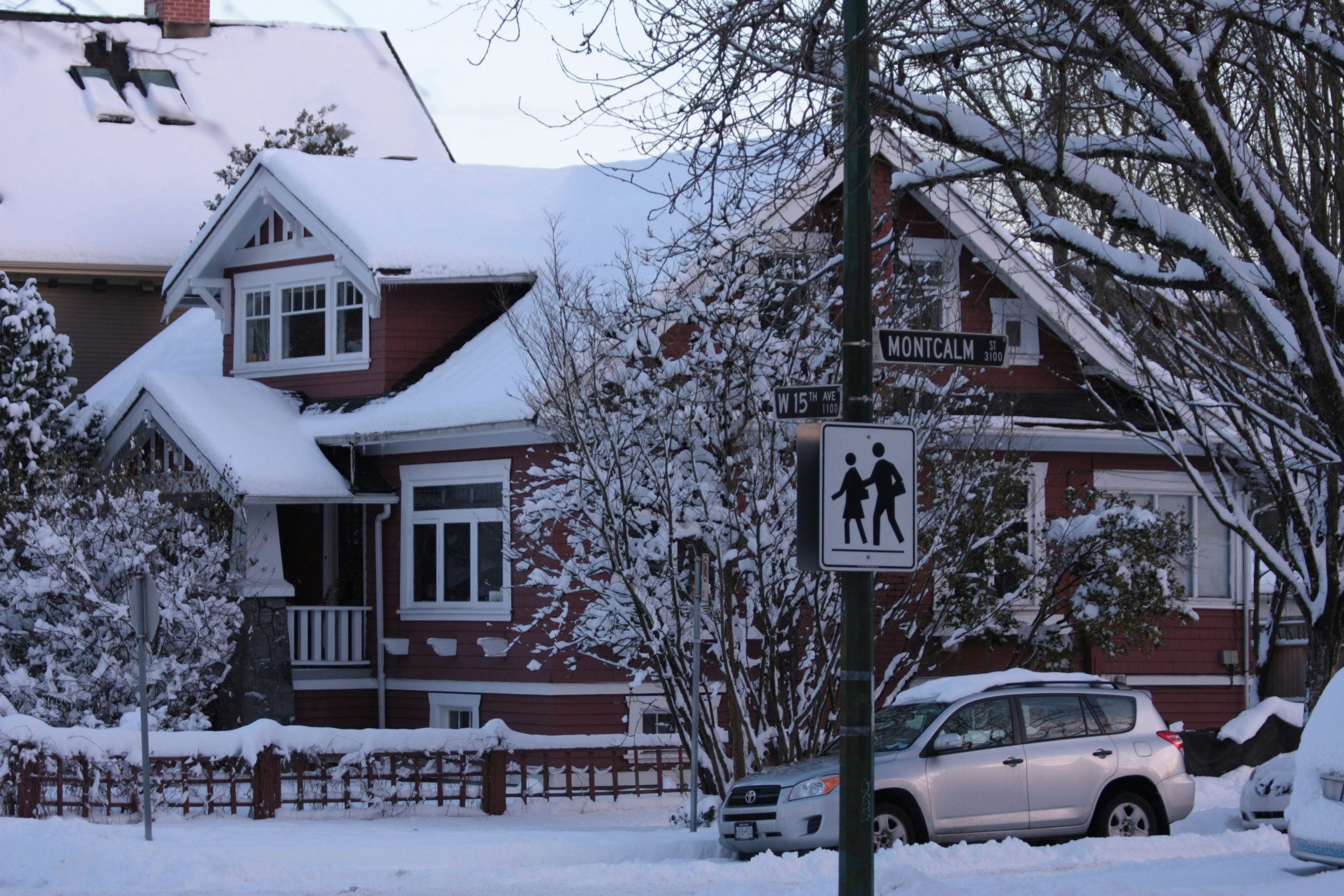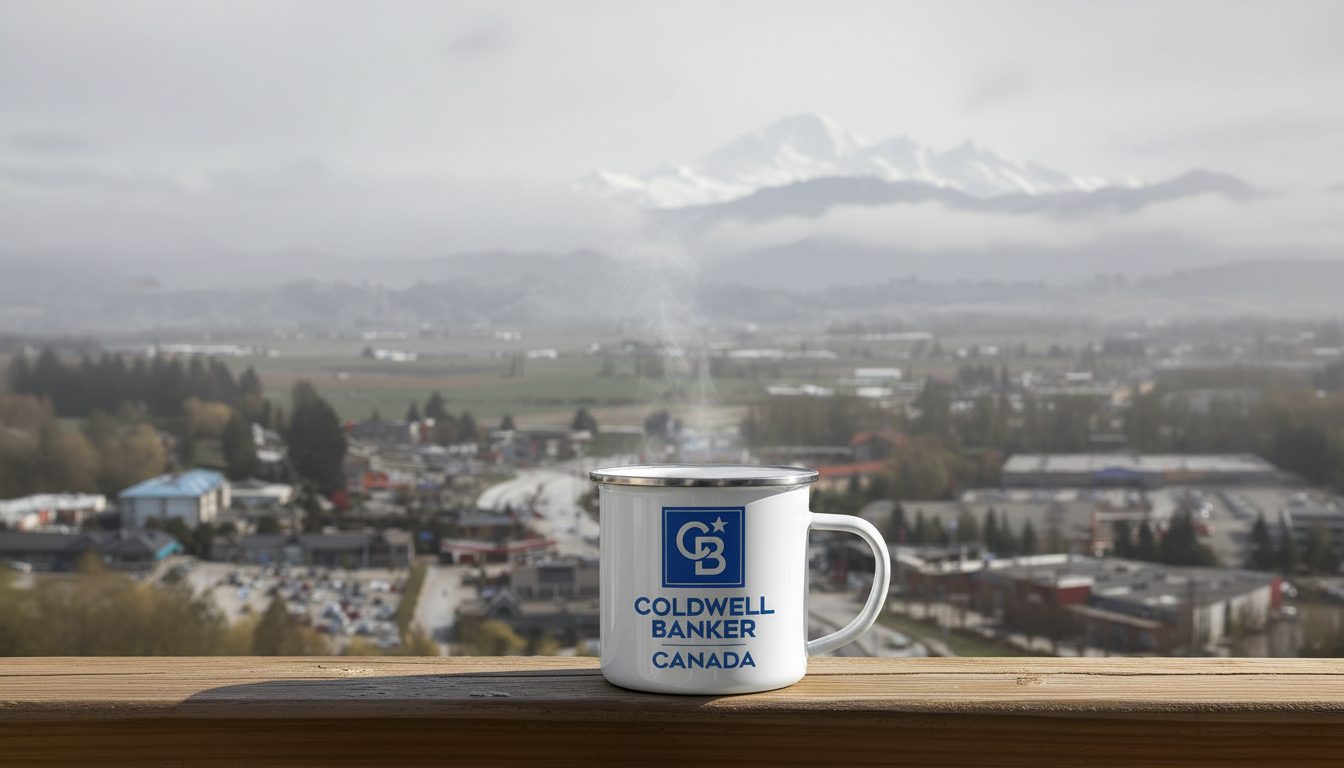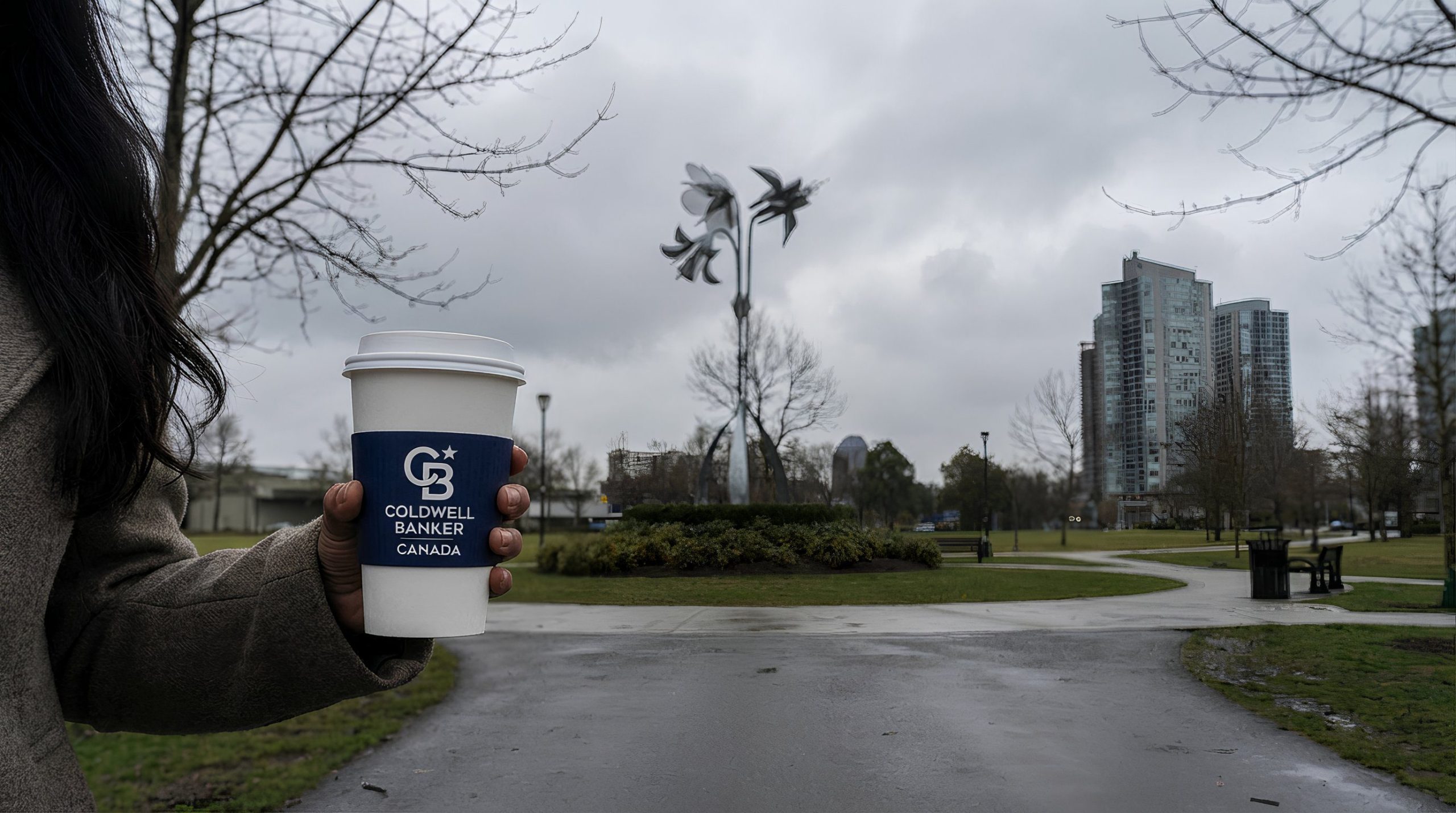Compass + Anywhere Real Estate: What This Means for Coldwell Banker Canada

On September 22, 2025, Compass and Anywhere Real Estate announced a definitive agreement to combine in an all-stock transaction. The transaction closed on January 9, 2026, with Anywhere Real Estate operating as a subsidiary of Compass.
Big headlines create big questions, especially across a network as established and trusted as ours. So we sat down with Karim Kennedy, CEO of Coldwell Banker Canada, to talk through what this means in practical terms for Canada, and where the real opportunities are for Canadian brokers and agents.
In short, the Compass + Anywhere transaction does not change Coldwell Banker Canada’s operations or leadership. Coldwell Banker remains a distinct global brand, while the combined company increases scale, referral connectivity, and long-term investment in technology and agent platforms.
Q: Karim, what happened, in plain language?
Karim Kennedy: Compass and Anywhere Real Estate combined into one company through an all-stock transaction. Anywhere is now part of the Compass family, and that matters because Anywhere has historically been home to some of the most recognized brands in real estate, including Coldwell Banker.
But I want to start where our network actually lives, which is Canada. The question everyone asks is, “What changes for us?”
And the answer is: your day-to-day does not change. Coldwell Banker Canada continues to operate with Canadian leadership, Canadian priorities, and the same focus on supporting broker owners and agents across this country.
Q: People want specifics. What are the key deal details and numbers our network should know?
KK: If we’re going to talk about this, we should talk about it accurately. The deal was announced on September 22, 2025 and closed on January 9, 2026. It was an all-stock transaction, with a combined enterprise value of approximately $10 billion.
At full scale, the combined platform brings together roughly 340,000 real estate professionals globally, operating across about 120 countries and territories. Those numbers help to explain the strategic intent. This was not positioned as a rebrand. It was positioned as a scale and platform move.
For Canada, it reinforces the two things our brokers and agents care about most: stability and advantage. Scale supports long-term investment and strengthens referral connectivity. Platform means better tools, better systems, and a more modern experience for clients that keeps the agent at the centre.
Our day-to-day in Canada doesn’t change, but the broader ecosystem around us gets stronger, and that’s an exciting position to be in.
Q: What brands are now under the combined company?
KK: The combined company includes Compass plus Anywhere’s portfolio, which includes brands like Coldwell Banker, Century 21, Sotheby’s International Realty, Christie’s, Corcoran, ERA, Better Homes, @properties and Gardens Real Estate.
But I want to be crystal clear on something: Coldwell Banker remains Coldwell Banker. This is one of the most recognizable real estate brands on the planet. You don’t buy brand equity of this magnitude to erase it.
You protect it, invest in it, and build with it.
Q: So, how does this affect Coldwell Banker Canada directly?
KK: Here’s the most practical way to frame it: this is a U.S. corporate transaction. It changes ownership at the corporate level in the U.S., but it does not rewrite how Coldwell Banker Canada operates day-to-day.
We are proudly Canadian-owned and operated, and we lead this business for the realities of the Canadian market. That means our decisions stay grounded here, our priorities stay focused on Canadian broker owners and agents, and our strategy stays built around what helps our network win in Canada.
What doesn’t change is who we are and how we support you. We remain focused on our broker owners, our agents, our clients, our growth, and our reputation in-market.
And if anything ever changes in a way that materially impacts Canada, you’ll hear it from us early and clearly. But today, the message is simple: we’re steady, we’re proud of what we’ve built, and we’re building what’s next.
Q: You sound optimistic. What’s the upside for the Canadian network?
KK: There are three main reasons I’m optimistic.
First, scale grows opportunity, especially in Canada. A platform this large increases connectivity with more relationships, more introductions, more mobility, and more referrals. When the combined organization is able to leverage 340,000 professionals across 120 countries, that’s an incredible number that creates unbelievable momentum
Canada is a destination market. We’re a relocation market. We’re a lifestyle market. A larger connected ecosystem translates into more inbound referral opportunities for Canadian agents and broker owners.
Second, a bigger organization creates positive investment pressure. When a company positions itself as “built for real estate professionals,” it creates an expectation that the platform, tools, and infrastructure will improve. That’s great news for agents and for broker owners and it means technology becomes a competitive weapon, not an afterthought.
Third, diversification supports resilience. Real estate moves in cycles. The brands that last are the ones that can keep investing through every kind of market: tight markets, soft markets, weird markets. Scale, stability, and reinvestment separate the brands that last from the ones that fade.
Q: Karim, you mentioned “tech” when we spoke. What specifically should Canada understand about the Compass tech side?
KK: Compass has been building a reputation around agent-facing technology and product development, and you can see it in what they’ve already shipped and how they talk about innovation.
Compass has already publicly positioned tools that help agents bring sharper data into listing conversations, like its Buyer Demand product, which is designed to show real-time buyer interest at different price points.
But there’s a bigger strategic thread here, and it’s the one people are really asking about: listings, distribution, and platform.
Across the U.S., the industry has been in an active conversation about listing access, private exclusives, consumer search behavior, and the role of portals. Compass has been very visible in that conversation, including around how listings move through the market.
When I talk about Compass “building a listing platform,” what I mean is this: they’re thinking about the end-to-end ecosystem. How listings are prepared, launched, marketed, and discovered, and how agents stay central in that experience rather than being disintermediated.
We are watching that evolution with a Canadian lens. Our market structure, our MLS ecosystem, and our regulatory environment are different from the U.S. But innovation in how agents present listings, how they amplify reach, and how they bring better insights to clients absolutely benefits Canadian professionals when applied thoughtfully.
Q: You know I have to ask. Will that Compass technology and listing platform come into the Canadian market?
KK: It’s a fair question, and I want to answer it responsibly. The honest truth is that it’s too early to make any commitments about specific Compass products or a listing platform being rolled out in Canada, on any timeline. This is a large integration, and decisions about technology are complex even within one market, let alone across borders.
What I can say is that we’re watching it closely and we’re already engaged in the right conversations. Canada has its own market structure, MLS environment, and regulatory requirements, and any tech that comes into our market would need to make sense here, comply here, and genuinely improve outcomes for Canadian brokers, agents, and clients.
We’re not in the business of promising tools before they’re ready or relevant. If there are opportunities to bring innovations into Canada, we’ll evaluate them through one filter: does it materially strengthen our Canadian network without creating disruption or complexity? If the answer is yes, we’ll explore it thoughtfully and back it fully. If the answer is no, we won’t force it.
If anything evolves in the future, we’ll communicate it clearly, with specifics, and with enough lead time for our network to feel confident.
Q: What concerns do you think brokers and agents are right to have?
KK: It’s normal and healthy to be thoughtful about this. When a deal makes headlines at this scale, people naturally wonder what it means for their business, their brand, and the support they rely on. Integration takes time, priorities get refined as leadership teams align, and in the U.S. there’s a lot of ongoing conversation that can add to the noise and make the moment feel more uncertain than it actually is.
What I want to be very clear about for Canada is this: nothing is changing in our day-to-day operations here. There’s no leadership change in Canada. Our focus, our strategy, and our support model remain the same.
Coldwell Banker Canada is stable, Canadian-led, and operating as we always have, with the same commitment to our broker owners and agents. So while it’s completely understandable that a headline like this can create anxiety, there’s no cause for it.
Our job is to keep the network steady, communicate clearly, and only make changes if and when there’s a real benefit for our Canadian business.
Q: Are we becoming “Compass Canada”?
KK: [Laughs] No. Coldwell Banker is, and will continue to be, Coldwell Banker.
I understand why people ask, because big headlines make it tempting to collapse everything into one simple storyline.
But this combination wasn’t designed to erase brands, it was designed to strengthen them. Coldwell Banker has more than a century of trust, recognition, and brand equity behind it, and that distinctiveness is part of what makes the portfolio valuable in the first place.
So the intention here is not to blend identities into one name. It’s to preserve what each brand stands for, invest in what makes each one strong, and ensure Coldwell Banker continues showing up in the market as Coldwell Banker with its own reputation, positioning, and global presence intact.
Q: What changes for our agents right now?
KK: Operationally, nothing changes today because of this transaction.
Your brand is the same. Your client experience is the same. Your brokerage ownership is the same. Your support from Coldwell Banker Canada continues as normal.
Q: What should agents and brokers watch over the next 6 to 12 months?
KK: I would watch for three things.
First, watch how the combined organization talks about product priorities, workflow tools, and how agents are supported at scale.
Second, I would be leaning into our referral platform. With a global footprint of over 120 countries and territories, there’s potential to make our referrals more visible and more intentional. Canada has a huge advantage here. We are a place people move to, return to, retire to, and invest in. We should be leveraging that at the brokerage level.
Third, we should be paying attention the the U.S. listing conversations, because it influences the industry. Even though the Canadian market is different, U.S. trends can create ripple effects. Listing, portals, technology and consumer behaviour matter and we are watching them closely.
Q: Last question. What do you want the Canadian network to take away from all of this?
KK: I want our network to feel our momentum. Above all else, I want people to feel confident, because this isn’t a moment of uncertainty for Coldwell Banker Canada. It’s a moment of alignment.
We have the strength of a legacy brand that Canadians already trust, and we now have even more scale behind us. That means more connectivity, more opportunity, and more investment in the tools and platforms that will define the next decade of real estate.
If you’re a broker owner, my message is this: keep building. Your business is stable, your brand is strong, and the runway ahead is long.
If you’re an agent, lean in. This is the kind of shift that can open doors, especially for those who are ready to use better tech, stronger systems, and a bigger network to grow.
And if you’re looking at where to align for the next chapter of your career, I’ll say this with complete conviction: Coldwell Banker Canada is positioned for what’s next. In fact, we’re helping to shape it.
Karim Kennedy is the CEO of Coldwell Banker Canada, guiding one of the country’s most established real estate brands into its next chapter of growth. A lifelong advocate for innovation, Karim believes great leadership is about empowering others to succeed. Drawing on more than 20 years in business, he brings a steady, forward-looking perspective to the challenges and opportunities shaping Canada’s housing market.
Canadian Housing Market Ends 2025 on a Balanced Note, Setting the Stage for Spring 2026

Buyers and sellers are embracing a calmer, strategic market as 2025 ends quietly and optimism grows for a spring revival in 2026.
January 15, 2026 – National home sales edged down 2.7% in December, marking a soft landing to an otherwise stable second half of the year. Prices declined as well, falling 4% year over year to an average of $673,335.00. With new listings down 2% and inventory sitting at 4.5 months of supply, the market remains broadly balanced. For buyers, sellers, and real estate professionals, this environment offers room for strategy, preparation, and long-term thinking.
Balanced and Stable at Year-End
After a period of rapid ups and downs, the end of 2025 finds the housing market on a much steadier footing. Supply and demand are roughly in equilibrium. At the current pace of sales, there is about 4.5 months of inventory, just shy of the long-term norm of 5 months. This means we are neither in a frenzied seller’s market nor a stalled buyer’s market, but something in between. Buyers have become more cautious and deliberate, and sellers are adjusting their price expectations to these conditions. There’s no panic on either side. In fact, the quieter year-end has allowed both buyers and sellers to catch their breath and plan their next steps.
“The past few years have pushed Canadians to rethink what stability really means in real estate,” noted Karim Kennedy, Chief Executive Officer of Coldwell Banker Canada. “Now we are seeing people make decisions with clearer intentions. They aren’t chasing the market. They’re acting when the timing and lifestyle fit. That shift will be key in how the next phase of the housing cycle unfolds.”
In many regions, sellers are making price concessions to close before year-end, while buyers are using this window to assess affordability and build a plan. The market may feel quieter, but it is not dormant. Behind the scenes, Canadians are preparing for what comes next.
Where Prices Stand Heading into 2026
Home prices in Canada have largely levelled off after the swings of the past few years. In December, the national average price was essentially flat compared to a year earlier, signalling that overall values have held their ground. The small declines that do show up in the index numbers are mostly the after-effect of earlier price surges in a few hot markets.
Most of the slight year-over-year dip in values came from Canada’s priciest regions like Toronto, Vancouver and parts of Southern Ontario that saw price spikes during the pandemic boom. By contrast, many smaller cities and more affordable areas (such as parts of the Prairies and Quebec) have managed to hold steady or even see slight gains.
Trends to Watch
Canadian millennials continue to defy expectations by leading homebuying demand. According to Wahi’s 2026 Homebuyer Intentions Survey, 25% of millennials say they are likely to purchase a home this year, up from 23% in 2025. Overall demand remains steady at 17% across all age groups, even amid persistent concerns about costs, employment, and affordability. While Gen Z interest declined slightly to 15%, Gen X intentions held at 18%, and baby boomers edged up to 10%.
This rising interest among millennial buyers is a signal that the spring market could see meaningful engagement from a key demographic. Many are now financially prepared, more informed, and motivated by lifestyle goals rather than pure investment.
“Millennials aren’t waiting for the perfect conditions anymore. They’re moving forward with clear priorities and smart preparation,” explained Hashim Arthur, Chief Operating Officer of Coldwell Banker Canada. “We’re seeing more first-time and move-up buyers entering the market with a game plan and trusted advice behind them. Their confidence is real, and it’s reshaping the narrative as we head into 2026.”
Clarity and Confidence Ahead
The quiet close to 2025 has created space for reflection and readiness. Sellers are beginning to prepare listings for spring. Buyers are reconnecting with agents and watching for opportunities. Interest rates remain low compared to last year, and inventory is still in balance.
Spring 2026 is shaping up to be a moment of renewed momentum with a return to a more grounded, confident market. Whether you are planning to buy or sell, the best strategy is preparation.
Whether buying, selling or simply exploring your options, Coldwell Banker Canada sales professionals are here to help you move forward with clarity, confidence, and care.
Coldwell Banker Canada Accelerates National Expansion With Significant Growth Across British Columbia

Expansion in B.C. marks another milestone in Coldwell Banker Canada’s multi-year plan to elevate professional standards and strengthen national leadership.
Vancouver, BC, December 18, 2025 – Coldwell Banker Canada advanced its national growth strategy with a major announcement in British Columbia as two long-standing franchise partners scale their operations and welcome upwards of 100 realtors into the network. The announcement highlights the accelerating momentum behind the brand and reinforces Coldwell Banker Canada’s commitment to building a stronger, more unified presence in key markets across the country.

Coldwell Banker Universe Realty, based in Surrey and serving communities across Greater Vancouver and the Fraser Valley, is opening a second location in Abbotsford, BC and adding more than 80 agents to the Coldwell Banker Canada network. The brokerage has built a strong reputation for client-centred service, local expertise, and a culture that mirrors the pace and diversity of Metro Vancouver’s real estate landscape. This expansion enhances Coldwell Banker Universe Realty’s capacity to meet growing consumer demand while offering agents increased access to the brand’s tools, marketing support, and professional development resources.
Coldwell Banker Executives Realty is also expanding its footprint with the launch of a new office in Abbotsford, where it expects to add 30 agents. With long-established roots in the Interior, Kootenays and Fraser Valley, the brokerage is recognized for its strong professional culture, hands-on leadership, and focus on developing agents at every stage of their careers. The Abbotsford office strengthens the brokerage’s reach in one of British Columbia’s most active real estate corridors.
The growth comes at a pivotal moment for the provincial and national housing markets. The latest forecast from the BC Real Estate Association projects average home prices in British Columbia approaching $995,600 in 2026, driven by sustained population growth and continued demand for housing. Nationally, the Canadian Real Estate Association reports stabilizing resale activity and renewed buyer engagement in several metropolitan regions. These trends create a strategic environment for brokerage growth and reinforce the value of strong leadership and meaningful brand support.
“These moves reflect the calibre of leadership within our network and the strong momentum we are seeing across Canada,” highlighted Karim Kennedy, Chief Executive Officer of Coldwell Banker Canada. “Brokers want stability, leadership, and a brand that is committed to raising the level of professionalism in our industry. They want a partner that stands behind them as they scale. These significant expansions reinforce the confidence that strong operators have in our platform and in our direction as a brand. We are building something that strengthens real estate leadership across the country, and this is another important step forward.”
Hashim Arthur, Chief Operating Officer of Coldwell Banker Canada, noted that the growth in B.C. demonstrates the increasing number of broker owners seeking a stable, well-resourced platform. “We are seeing a shift across the Canadian real estate landscape. Broker owners are making thoughtful, strategic decisions about who they want to align with, and more of them are choosing Coldwell Banker Canada. They see a brand that is investing in tools, marketing, leadership, and long-term growth. Our network is expanding because our value proposition is resonating with the people who drive this industry. This is part of a broader movement we are seeing from coast to coast, and it reinforces the strength and momentum of our national strategy.”
Coldwell Banker Canada will continue advancing its national expansion strategy through 2026 with a focus on building leadership depth, elevating professional standards, and supporting the long-term success of its brokers and agents. The company’s momentum reflects a clear trend across the country: leaders are choosing a brand with stability, integrity, and a forward-looking vision for the future of Canadian real estate.
Coldwell Banker Canada Expands Atlantic Footprint With New Quispamsis Brokerage Led by Industry Coach and Entrepreneur

Coldwell Banker Excellence Realty Joins the Network, Offering Local Expertise and a Training-First Approach for Agents Across New Brunswick.
St. John, NB, December 17, 2025 – Coldwell Banker Canada is expanding its Atlantic presence with the opening of Coldwell Banker Excellence Realty, set to officially open on January 1, 2026. The brokerage will serve Greater Saint John, Rothesay, Quispamsis, and surrounding communities. The launch represents a significant step in the brand’s continued investment across New Brunswick, aligning with its mission to elevate professional standards and provide more comprehensive support for homebuyers, sellers, and real estate professionals nationwide.
The opening of Coldwell Banker Excellence Realty reflects Coldwell Banker Canada’s broader direction, which includes targeted expansion, enhanced
 training initiatives, and sustained investment in tools designed to elevate the real estate experience for consumers and professionals alike.
training initiatives, and sustained investment in tools designed to elevate the real estate experience for consumers and professionals alike.
Coldwell Banker Excellence Realty is founded and led by Colin Bradford, a 20-year real estate veteran with experience spanning sales, senior brokerage leadership, and high-performance coaching. His passion for coaching, particularly team leaders and top-producing agents, ultimately shaped hiscareer as he built a multi-provincial coaching program that supported professionals across New Brunswick, Nova Scotia, Prince Edward Island, Manitoba, and Florida.
“This opening reflects the type of leadership and entrepreneurial spirit that is driving momentum across our network,” noted Karim Kennedy, Chief Executive Officer of Coldwell Banker Canada. “Colin has a track record of mentorship, team-building, and performance that aligns directly with our commitment to helping agents succeed at every stage of their careers. We are proud to welcome him to the Coldwell Banker Canada team.”
After relocating to New Brunswick and continuing to coach through the pandemic, Colin recognized an opportunity to bring a fresh leadership approach back into brokerage operations, one rooted in business fundamentals, agent development, and personalized growth strategies.
“Coldwell Banker Canada is a brand that understands the value of community,” explained Colin Bradford. “The autonomy they give brokers makes it possible to build a boutique-style environment that truly reflects the needs of the people who live and work here. My focus is creating a space where agents feel understood, encouraged, and equipped with the training and systems that help them serve their clients, and their communities, at the highest level.”

A distinguishing element of Coldwell Banker Excellence Realty will be its training-first culture, grounded in Colin’s background as a behavioural consultant and performance coach. New agents will have access to DISC assessments, tailored lead-generation plans,
foundational business coaching, and ongoing development programs designed to help them reach their goals with clarity and confidence.
The brokerage’s model is designed to appeal to both new and experienced agents who value structured guidance, professional development, and the support of a globally recognized brand.
Quispamsis and the Greater Saint John region continue to see rising demand from both local and out-of-province buyers drawn to affordability, lifestyle, and economic growth. With Coldwell Banker Canada’s global support and Colin’s industry expertise, the brokerage aims to become a trusted partner for clients navigating the region’s evolving real estate landscape.
“This is a unique time in New Brunswick, and we see tremendous opportunity ahead,” Kennedy added. “Local leadership matters, and Colin is the kind of leader who will help shape the future of our presence across the province.”
Agents interested in learning more about opportunities with Coldwell Banker Excellence Realty are encouraged to explore current openings at: https://coldwellbanker.ca/careers-st-johns
About Coldwell Banker Excellence Realty
Coldwell Banker Excellence Realty is an independently owned full-service brokerage serving Quispamsis, Rothesay, Greater Saint John, and surrounding New Brunswick communities. Led by industry coach and entrepreneur Colin Bradford, the brokerage offers personalized training, business development support, residential real estate services, and a boutique client experience backed by global brand strength.
About Coldwell Banker Canada
Coldwell Banker Canada is a national real estate network built on a legacy of trust, service, and professional excellence. With more than 170 offices across the country, the brand has been helping Canadians buy and sell homes for over four decades. Coldwell Banker Canada combines the strength of a global real estate leader with a distinctly Canadian approach, offering modern tools, marketing support, and locally informed expertise to brokers, agents, and consumers. The organization is committed to raising industry standards, strengthening communities, and guiding Canadians home with confidence. For more information, visit: https://coldwellbanker.ca/
Canadian Home Sales and Prices Ease as Market Prepares for Spring Reset

Buyers remain cautious, sellers adjust expectations, and strategic opportunities emerge as Canada’s housing market closes out 2025 in balanced territory.
December 16, 2025 – National home sales edged down 0.6% in November, marking a soft landing to an otherwise stable second half of the year. Prices also declined, falling 3.8% year over year to an average of $674,800. With new listings down 1.6% and inventory sitting at 4.4 months of supply, the market remains broadly balanced, not overheated, but not stalled either. For buyers, sellers, and real estate professionals alike, this environment offers room for strategy, preparation, and long-term thinking.
A Balanced Market Built on Stability
Compared to earlier volatility, today’s housing landscape looks far more stable. While sales have slowed from mid-year highs, national activity is still well within pre-pandemic norms. In fact, the ratio of sales to new listings landed at 52.7% in November, a level consistent with balanced market conditions.
“The past few years have pushed Canadians to rethink what stability really means in real estate,” said Karim Kennedy, Chief Executive Officer of Coldwell Banker Canada. “Now, we’re seeing people make decisions with clearer intentions. Buyers and sellers aren’t chasing market trends. They’re acting when the timing and lifestyle fit. That shift will be key in how the next phase of the housing cycle unfolds.”
In many regions, sellers are making price concessions to close before year-end, while buyers are using this window to assess affordability and build a plan. The market may feel quieter, but it is not dormant. Behind the scenes, Canadians are preparing for what comes next.
Where Prices Stand
The national average home price was down compared to last year, but remains stable on a month-to-month basis. Most of the decline came from larger, more expensive markets such as Vancouver, Toronto, and southern Ontario, where prices saw the largest gains during the pandemic. Smaller cities and comparatively more affordable regions like Quebec City and the Prairies continue to perform relatively well.
The MLS Home Price Index also showed a moderate annual decrease of 3%, reinforcing the view that prices have corrected and are now holding steady. While these adjustments have narrowed the affordability gap slightly, many first-time buyers are still constrained by borrowing power and high living costs.
“Buyers today aren’t just looking for price relief. They want predictability,” explained Hashim Arthur, Chief Operating Officer of Coldwell Banker Canada. “That means being able to plan for a purchase without sudden shifts in rates, prices, or competition. We’re seeing a more intentional buyer emerge, and our role is to support them through the process.”
Rates, Policy, and What’s Next
Interest rates remain a key driver of market confidence. The Bank of Canada has held its policy rate at 2.25% following four cuts earlier this year. With borrowing costs at their lowest since 2022, qualified buyers are beginning to re-enter the market, though most are taking a deliberate approach.
Looking ahead, economists and real estate leaders expect more movement by spring. A stable rate outlook combined with pent-up demand could lead to a more active first half of 2026, especially if employment remains steady and consumer sentiment continues to improve.
Paul Abbott, National Vice President of Sales at Coldwell Banker Canada, emphasized the opportunity for brokers and agents to lead through the uncertainty: “Every market cycle creates space for professionals to set the tone. Right now, that means helping clients stay informed, managing expectations, and seeing beyond the headlines. We’re using this season to reconnect with our communities and position our brokerages for a strong, service-driven spring.”
If you are planning to sell your home in the coming months, preparation is everything. The current market may not feel fast, but it is functional and serious buyers are still looking.
Now is the time to work with a trusted agent, review your pricing strategy, and make sure your listing stands out. From staging and professional photos to pre-listing marketing, the small details matter more than ever.
Confidence Through Clarity
Canada’s housing market is heading into the new year with clarity and balance. It‘s not a seller’s market, and it’s not a buyer’s market. It’s a strategic market. Buyers are waiting for the right moment, sellers are becoming more realistic, and both sides are moving forward when the conditions align.
With signs pointing to a more active spring, the final weeks of 2025 offer a chance to prepare. Whether buying, selling or simply exploring your options, Coldwell Banker Canada sales professionals are here to help you move forward with clarity, confidence, and care.
A Step in the Right Direction For Housing as Bank of Canada Lowers Rates to 2.25 Percent

What the Second Consecutive Rate Cut Means for Homeowners, Buyers, and Agents
October 29, 2025 – The Bank of Canada lowered its key interest rate by another 25 basis points today, bringing the overnight lending rate to 2.25%. This marks the second cut in as many months as the central bank works to support an economy showing signs of slower growth and rising unemployment.
While the move is welcome news for homeowners with variable-rate mortgages or renewals on the horizon, experts say it may not be enough to spark a major upswing in home sales just yet.
“This is a step in the right direction,” explains Karim Kennedy, CEO of Coldwell Banker Canada. “The cut sends a signal that the Bank of Canada is aware of the pressures Canadians are facing, especially homeowners with renewals coming up in 2026. It provides some breathing room, but it is not a magic wand. Affordability challenges remain, and the market is still adjusting to a new normal.”
The Bank’s latest Monetary Policy Report projects that inflation will stay close to 2%, with growth improving slowly through 2026. The central bank also noted that new United States tariffs are reshaping Canada’s economy and creating added uncertainty for businesses and consumers.
Even so, the rate cut alone may not change the pace of the housing market. According to Rates.ca, a 25 basis point decrease saves about $15 dollars per $100,000 dollars of mortgage in monthly payments. That helps, but it is only a modest improvement.
“For buyers who have been waiting for a sign of stability, this is it,” Kennedy says. “Confidence matters. Even a small rate cut can shift the psychology of the market. It reminds people that borrowing costs have likely peaked, and that can bring some buyers back to the table, especially in balanced or more affordable markets.”
In many parts of the country, prices are down between 10 and 20% from their pandemic highs, but there is still a gap between housing prices and wages. Kennedy points out that for financially ready buyers, this may be an opportunity to act while competition is lower and inventory remains healthy.
What it means for homeowners and sellers
For existing homeowners, today’s cut offers a little relief on variable rate payments and a signal that stability is returning. With approximately 1.8 million mortgages set for renewal in the next 12 months, many households will feel modest rate relief as welcome news.
“For sellers, this is the time to stay patient and strategic,” Kennedy noted. “There is more activity than there was six months ago, but buyers remain careful. Homes that are priced correctly and presented well are selling. The market is moving, just at a steadier pace.”
Realtors across the Coldwell Banker Canada network are also reporting more inquiries from pre-approved buyers who had been waiting for signs that the tide was turning.
Looking ahead
The Bank of Canada has indicated that this level of interest rates may be “about right” for balancing inflation control and economic support. That could mean the next few months bring a pause rather than another immediate cut.
Canadian Home Sales Ease After Five-Month Climb, But Confidence Remains High

Canada’s housing market finds its rhythm, with steady demand, stable prices, and growing confidence heading into 2026.
After five months of steady gains, Canada’s housing market took a brief pause in September. National home sales slipped 1.7% compared to August, yet activity remained 5.2% above September 2024. It was the strongest September since 2021, a sign that buyer confidence and long-term demand remain steady.
Sales slowed in several major markets, including Vancouver, Calgary, Edmonton, Ottawa, and Montreal, while Toronto and Winnipeg posted gains that helped balance national numbers. After months of strong activity, a brief cooling period is not unexpected.
“This is a healthy recalibration, not a reversal,” said Karim Kennedy, Chief Executive Officer of Coldwell Banker Canada. “We are seeing the market settle into more sustainable patterns. That stability gives both buyers and sellers the confidence to move forward with clarity rather than urgency.”
Balanced Conditions Hold
On the supply side, new listings eased by less than 1% while inventory held steady at 4.4 months of supply, the lowest since January, but still within long-term averages. The national sales-to-new listings ratio remained near 51%, reinforcing balanced conditions across most regions.
“Buyers have more options than they did earlier in the year, and sellers who price correctly are achieving strong outcomes,” explained Hashim Arthur, Chief Operating Officer of Coldwell Banker Canada. “What we are seeing now is a market that rewards good strategy and preparation rather than pure timing.”
There were just under 200,000 homes listed for sale at the end of September, about 7.5% higher than last year and in line with historical norms. The additional supply is giving buyers more space to make informed decisions and reducing the pressure that defined earlier market cycles.
Prices Steady as Market Normalizes
The national MLS Home Price Index was virtually unchanged in September, down only 0.1% from August and 3.4% lower than a year ago. The national average sale price was $676,154, up 0.7% from September 2024.
That small increase reflects a market that has largely found its footing. Higher-priced cities such as Toronto and Vancouver continue to stabilize after deeper corrections, while more affordable regions in the Prairies and Atlantic Canada are showing modest gains.
A Season of Opportunity
The transition from rapid growth to balanced conditions is creating new opportunities for both consumers and the real estate industry. Buyers can now approach the market with less competition, while sellers can plan with more predictability.
“For buyers, this is a chance to make decisions with confidence rather than pressure,” noted Kennedy. “And for sellers, success now depends less on speed and more on how well your home is positioned and marketed.”
For brokers and agents, balance brings a different kind of opportunity. “When the market evens out, relationships matter most,” emphasized Paul Abbott, National Vice President of Franchise Sales for Coldwell Banker Canada. “This is when local expertise, professionalism, and guidance truly stand out. Brokers who invest in supporting their agents and helping them grow are the ones who will build lasting success.”
Looking Ahead
With interest rates stabilizing and consumer confidence improving, the final months of 2025 are expected to remain steady. Pent-up demand continues to surface as Canadians adjust to more normal borrowing conditions and look to make long-delayed moves.
Arthur sees this moment as one of optimism and perspective. “The conversation is shifting from what was lost during the market correction to what is possible now. Buyers, sellers, and agents alike are realizing that a balanced market isn’t a pause in progress. It’s the foundation for the next stage of growth.”
As Canada’s housing market prepares to close out the year, that foundation looks solid. Stability, strategy, and confidence are replacing volatility, setting the stage for a strong start to 2026.
North of Extraordinary Celebrates How Canadians Experience The Feeling of Home

Coldwell Banker Canada, proudly Canadian-owned and community-focused, believes every home has a story worth telling.
You see more than a house. We do too.
Every home tells a story. It’s the corner of the kitchen where the dog bowl lives, the pencil marks on the doorframe that quietly record the years, and the sound of hallway giggles as kids race through the house.
Buying or selling a home isn’t just about square footage or market trends. It’s about protecting those memories while creating space for new ones. For many Canadians, this journey can feel overwhelming. The question at the heart of it all: Who can I trust to guide me through one of life’s biggest transitions?
Whether it’s a first condo in the big city or a family home filled with decades of memories, every move carries both financial weight and deep emotional significance.
Leading the way for consumers is Coldwell Banker Canada, whose 3,000 agents nationwide believe that trust is built through local expertise and a deep understanding of what home truly means. Since 1989, the company has developed a strong network and a reputation for guiding Canadians through the complexities of buying and selling homes, combining national strength with neighbourhood-level insight to create a personal and trusted real estate experience. Today, with a Canada-first approach and Canadian ownership, Coldwell Banker Canada continues to grow while staying deeply connected to the communities it serves and helping Canadians move forward with confidence
“Canadian real estate is not one market, it is dozens of local markets that move differently,” says Karim Kennedy, CEO of Coldwell Banker Canada. “Being Canadian-owned and operated means we are making decisions here, for Canadians, with their realities in mind.”
That distinction matters in an industry where many national brands take their direction from outside the country. Coldwell Banker Canada sees its independence as a way to stay closer to what buyers and sellers actually experience, from navigating changing markets in Toronto to capitalizing on continued demand for properties in smaller towns.
In celebration of their approach to real estate, Coldwell Banker Canada launched North of Extraordinary™, a national platform that asks Canadians to look at home not as a property, but as a place where life happens. At its heart, it aims to capture moments Canadians know well: the scrape of skates on a backyard rink, snow boots drying by the door after the first storm, mismatched chairs pulled to the table for Thanksgiving, or towels hanging on the porch after a summer swim at the lake.
 “The idea behind North of Extraordinary is simple,” explains Shane Supernova, Brand Marketing Manager with Coldwell Banker Canada. “It’s about pausing to appreciate the moments that turn four walls, a roof, and a front door into a home. It’s the laughter, the milestones, even the chaos. Those are the things that make a house extraordinary.”
“The idea behind North of Extraordinary is simple,” explains Shane Supernova, Brand Marketing Manager with Coldwell Banker Canada. “It’s about pausing to appreciate the moments that turn four walls, a roof, and a front door into a home. It’s the laughter, the milestones, even the chaos. Those are the things that make a house extraordinary.”
By focusing on the feelings tied to home, such as belonging, pride, and continuity, the platform reflects a belief that the company says defines its network: that real estate is about people first and the trust that guides them through one of life’s biggest decisions.
“For most people, buying or selling a home is the single biggest decision of their lives,” Hashim Arthur, Chief Operating Officer, Coldwell Banker Canada, explains. “Our role is to make sure they have the guidance and confidence to navigate that with clarity.”
Arthur emphasizes that professionalism and accountability are not optional in today’s market. “Trust is the foundation of real estate,” he notes, “Canadians deserve agents who are accountable, professional, and connected to their communities. That is what we work on every single day.”
That focus on trust has also been recognized by Canadians themselves. Through its Ultimate Service program, Coldwell Banker Canada has earned a 98 percent client satisfaction rating from more than 95,000 Canadian buyers and sellers, a level of satisfaction the company says is unmatched in the industry.
Beyond expertise, he adds, it is the community connection that makes the difference. “When you work with a Coldwell Banker Canada agent, you are working with someone who knows the schools, the parks, the history of the neighbourhood, because they live there too. That local insight is what helps buyers and sellers feel confident they are making the right move.”
This focus on trust is what helps consumers look beyond the noise of market headlines. “The truth is, no two moves are the same. What we can promise is that our agents show up with the expertise, the care, and the resources to help families move forward.”
Coldwell Banker Canada has been steadily expanding its presence, welcoming new brokerages from the Northwest Territories to Atlantic Canada. But Kennedy says growth isn’t about numbers alone.
“For us, growth isn’t about planting more signs in more lawns,” he says. “It’s about building a culture Canadians can rely on. We want brokerages and agents who see real estate as a calling to serve, not just a business to run.”
That approach has helped Coldwell Banker Canada post net positive agent growth at a time when many competitors are contracting. For consumers, it means having access to a network of professionals who combine local expertise with national support.
Behind the scenes, the company’s leadership says it is investing in tools, training, and support to raise the bar for agents and, by extension, the experience of buyers and sellers. But at its core, the message is simple: Coldwell Banker Canada is Canadian-owned, rooted in Canadian communities, and focused on the people who call them home.
“Wherever your next move takes you,” Kennedy says, “Whether it is a first condo, a family home, or a quiet place to start a new chapter, Coldwell Banker Canada is already there, helping Canadians turn houses into homes. That is what North of Extraordinary means.”
Thinking about making your next move?
Connect with your local Coldwell Banker Canada community brokerage here.
Canadian Home Sales Climb for Fifth Straight Month as Market Momentum Builds

Canada’s housing market finds its footing with five straight months of sales growth, rising inventory, stable prices, and cautious optimism for the fall
The Canadian housing market continued its late spring rebound through August, with national home sales rising 1.1% compared to July. This marks the fifth straight month of increasing activity and adds up to a 12.5% gain in transactions since the slowdown in March. August also delivered the strongest sales result for this time of year since 2021. Compared to last year, actual sales were up 1.9%, showing a modest improvement over August 2024.
Sales Up Nationally, Led by Montreal and Vancouver
According to the Canadian Real Estate Association, much of the growth came from Montreal, Greater Vancouver, and Ottawa. These gains were enough to offset a small decline in the Greater Toronto Area. Toronto has been the main driver of national sales increases for much of the year, so a brief pause is not unexpected. The encouraging sign is that other major cities are now picking up steam.
“This five-month upswing in sales is giving buyers and sellers new confidence heading into the fall,” noted Karim Kennedy, Chief Executive Officer of Coldwell Banker Canada. “We are seeing strong momentum in markets like Montreal and Vancouver, showing that the recovery isn’t limited to one region. Canadians are adjusting to the current interest rate environment, and our Coldwell Banker agents are helping clients navigate these opportunities with confidence.”
Overall, activity has been steadily gaining strength since the spring. Many buyers who had been waiting on the sidelines during the quieter winter and early spring are gradually returning to the market.
More Sellers Return as New Listings Rise
Sellers have responded to the uptick in sales by listing more homes. Nearly 76,000 properties came onto the market in August, a 2.6% increase from July and about 6% higher than a year ago. Because new supply rose faster than sales, the sales-to-new-listings ratio eased slightly to 51.2% compared to 52% in July.
That ratio means roughly half of all new listings are selling, a sign of balanced conditions. Buyers have more choice than they did in the spring, while demand remains strong enough to keep pace.
Inventory Lowest Since January, Yet Balanced
At the end of August, Canada had 4.4 months of inventory on the market. That is the lowest level since January, but still within normal ranges for this time of year.
“Even with inventory at its lowest level in months, there’s still enough supply to keep the market healthy and avoid runaway price pressure,” observed Hashim Arthur, Chief Operating Officer of Coldwell Banker Canada. “Conditions are balanced, which is a good place to be. Buyers have more selection than they did earlier in the year, and sellers who price their homes appropriately are still finding strong interest.”
In total, there were about 195,000 properties listed for sale across the country at the end of August. That is almost 9% higher than a year ago and is in line with historical norms for this time of year. The overall supply picture has returned to a more typical state after years of tight conditions, which has prevented the extreme seller’s markets seen in the past.
Home Prices Holding Steady
Despite rising sales, prices have been largely flat. The MLS Home Price Index, which measures the benchmark value of a typical home, slipped by just 0.1% from July. It remains about 3.4% lower than last August, reflecting the declines seen in late 2024 and early 2025 when the market adjusted to higher borrowing costs.
Since April, however, prices have held steady. The national average sale price in August was about $664,000, up 1.8% compared to August 2024. That was the first annual increase in several months and suggests that values are stabilizing, with modest gains showing up in some regions. Year-over-year comparisons are expected to keep improving this fall as the market moves past last year’s lows.
Price patterns vary by region. Higher-priced markets such as Toronto and Vancouver went through deeper corrections last year and are now stabilizing. More affordable markets are beginning to see small increases as activity picks up. The overall message is that prices are no longer falling, but they are not surging either. Buyers are not facing the rapid increases seen during the pandemic, while sellers are generally not under pressure to discount heavily.
What to Watch This Fall
As summer wraps up, attention turns to the fall market, which is traditionally one of the busiest times of the year. Two factors will be key. The first is the surge in new listings after Labour Day, which has already begun. The second is the Bank of Canada’s next interest rate decision. Even a modest rate cut could bring more buyers back into the market.
“We anticipate that if borrowing costs ease even slightly, it will encourage a wave of buyers who have been waiting for a better entry point,” Arthur explained. “Our agents are already seeing more inquiries from clients who are watching mortgage rates closely. With additional listings coming on and a possible rate adjustment ahead, the fall could be a very active season. Buyers who are ready with financing in place will be in a strong position to act quickly when they see the right home.”
Kennedy added, “A balanced market is good news. Buyers have more choice, sellers have realistic expectations, and transactions are happening at a healthy pace. As we head into the fall, preparation and timing will be key. Those who are ready to move will be best positioned to take advantage of opportunities as they arise.”
Trust in Canadian Real Estate

Why recent failures are a wake-up call for consumers, agents, and brokerages to demand higher standards.
In recent months, a few situations have reminded Canadians how fragile trust in real estate can be. In one instance, a large brokerage closed suddenly after serious issues were discovered in the handling of client deposits. In another, allegations of financial misconduct by a licensed professional raised questions about how problems could go unnoticed inside a long-established office.
These examples are reminders that when oversight or culture falls short, the effects reach far beyond a single transaction. Clients begin to question whether their investments are safe, and professionals across the industry are left to defend the reputation of the profession as a whole.
What Went Wrong
Oversight in real estate is meant to serve two purposes: to protect consumers and to hold professionals accountable. Yet when financial controls are weak or regulators are slow to act, the system fails on both counts. In recent cases, serious problems went undetected until they had already caused significant harm, raising doubts about how closely trust accounts are monitored and how quickly red flags are investigated.
Regulation, on its own, is not enough. Rules and policies only matter if they are enforced with consistency and urgency. Too often, the focus falls on minor technicalities while larger risks go unchecked. When that happens, clients are left vulnerable, and agents who are doing their jobs with integrity find their reputations undermined by the failures of others.
These lapses are not just administrative shortcomings. They weaken the bond of trust that real estate depends on, and they point to the need for stronger oversight combined with a culture that demands higher standards every day.
Trust as the Cornerstone
Buying or selling a home is one of the most important decisions of a lifetime. It depends entirely on trust. Clients must know that their Realtor is acting with integrity, just as Realtors expect honesty from their clients.
Consumers should demand financial accountability. In most provinces, deposits are held in a brokerage’s trust account. Recent events show why it is fair to ask exactly how those accounts are managed, how often they are reconciled, and what protections exist if funds are misused. A reputable brokerage will have a clear answer and will not hesitate to share it.
Professionalism is equally important. Clients should expect their Realtor to act with honesty and fairness, to disclose conflicts, and to put the client’s interests first. If something feels wrong, consumers are right to walk away.
Finally, consumers must look beyond the individual agent to the company behind them. A strong agent in a weak system can still end up caught in disaster. Research the brokerage name on the contract. Ask about its training, compliance, and track record. The right brokerage sets the tone for ethical conduct.
What Agents Should Prioritize
It’s not only consumers who are re-evaluating their choices. Real estate agents themselves have been given much to think about. For many, the sudden closure of a brokerage can be career-altering, leaving agents to scramble to find new homes for their businesses overnight, all while reassuring clients that those clients’ deposits and deals were still safe. The lesson is painfully clear: an agent’s choice of brokerage can either underpin their success or undermine it catastrophically.
Choosing a brokerage based on splits or low fees alone is a short-sighted decision. A rock bottom desk fee means little if the firm cannot protect your clients or your own livelihood.
Agents should ask harder questions. Does the brokerage have strong oversight of trust accounts? How does it respond to misconduct? What kind of mentorship and training does it provide? What is the broker-owner’s reputation in the community?
Culture is critical. A brokerage should promote integrity, discipline those who fall short, and support agents who choose to do the right thing even when it is hard. It should also be prepared for a crisis. When challenges arise, the response must be swift and principled. Clients and agents alike need to see that integrity matters more than convenience, and that the organization will always put trust and accountability ahead of affiliation.
At the end of the day, every Realtor’s career depends on public trust. By choosing brokerages that prioritize ethics and accountability, agents protect their clients and themselves while strengthening the industry’s collective reputation.
The Brokerage Burden
These situations also shine a spotlight on the responsibility of brokerages. Real estate brokerages are more than just administrative hubs; they are the first line of defence for consumer protection. A brokerage accepts deposit cheques, holds them in trust, supervises transactions, and mentors agents on proper practices. When a brokerage fails at these duties, whether through negligence or malfeasance, the consequences can be devastating, as we’ve seen. That’s why broker-owners must view integrity and transparency not as abstract ideals, but as daily operational imperatives.
Proactive oversight is the starting point. Brokerages should conduct frequent reconciliations of trust accounts and invite third-party review. Some in the industry have called for monthly reporting and mandatory external audits. Brokerages that value transparency will welcome these measures.
Equally important is setting a culture of ethics. Leaders must encourage staff to speak up, protect those who do, and take decisive action when misconduct is uncovered. Trust grows when everyone in the organization knows that integrity is non-negotiable.
A Call to Higher Standards
There is an opportunity when such situations happen. Trust, once broken, can be rebuilt, but it demands action from every part of the profession. Regulators must enforce the rules with speed and strength. Industry associations must continue pressing for consumer protections. Brokerages must go beyond the minimum standard to ensure deposits and deals are safe. Agents must align themselves with firms that share their values. Consumers must keep asking smart questions and expect clear answers.
Most Realtors are already living up to that standard. They are honest, hardworking, and as frustrated as the public when scandals make headlines. Each time an agent goes the extra mile for a client, or a brokerage chooses transparency over convenience, trust is restored a little more.
This is a pivotal moment. We can allow these failures to define us, or we can use them to demand better of ourselves. The choice is ours. Agents must demand higher standards. Clients deserve them. And the future of Canadian real estate depends on them.
Rob Goodings is Vice President of Account Management at Coldwell Banker Canada, where he guides franchise development and helps grow the brand’s presence in new markets. Since joining the company in 2005, he has built a career that spans marketing, learning, and affiliate services, giving him both a deep knowledge of the business and close connections across the network. Rob’s focus is on supporting broker-owners, strengthening relationships, and ensuring the Coldwell Banker brand continues to deliver long-term value across Canada.


 Facebook
Facebook
 X
X
 Pinterest
Pinterest
 Copy Link
Copy Link
